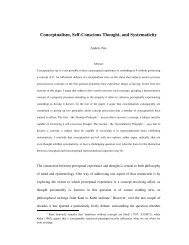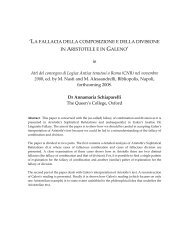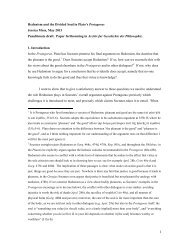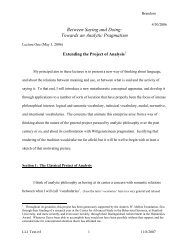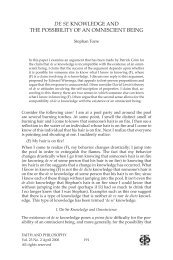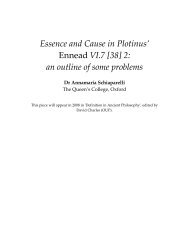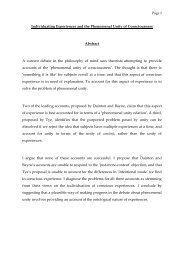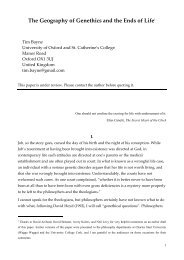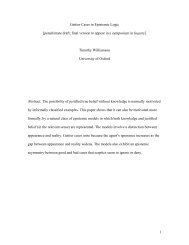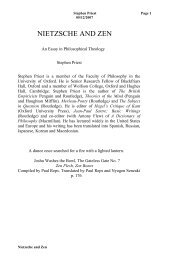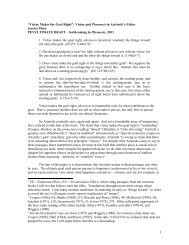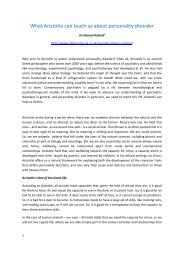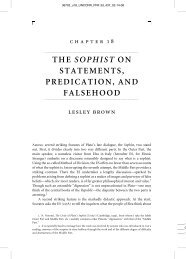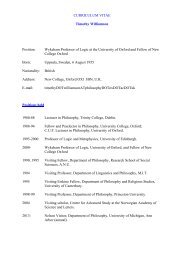Understanding as a Finite Ability Joseph K. Schear Christ Church ...
Understanding as a Finite Ability Joseph K. Schear Christ Church ...
Understanding as a Finite Ability Joseph K. Schear Christ Church ...
Create successful ePaper yourself
Turn your PDF publications into a flip-book with our unique Google optimized e-Paper software.
To appear in Wittgenstein and Heidegger (Routledge, 2013) eds. D. Egan, S. Reynolds, and A.Wendland<br />
“understand,” which serves <strong>as</strong> an entrée to the following illustrative scenario. A writes down a<br />
number series, and B, in the pupil position, is to figure out the formula that expresses the law of<br />
the sequence of numbers: “Now I understand!” and B proceeds to continue the series on his own.<br />
Surely here, if anywhere, understanding is a mental state—for example, the formula itself might<br />
very well occur to one, prompting the claim to understand. The familiar sense of understanding<br />
here imagined is something that happens, a moment of occurrent awareness, and so well<br />
captured by Cartesianism about understanding.<br />
One might accommodate sudden understanding by conceding that the word<br />
“understanding” is ambiguous. Sometimes we use it in the ability sense; sometimes we use it in<br />
the state sense. Compare the word “bank.” Sometimes we use it to refer to a pile of dirt by a<br />
river; sometimes we use it to refer to an institution that holds money and charges fees (among<br />
other things). But that can’t be right. To lift a remark Wittgenstein offers in a different context:<br />
“Then h<strong>as</strong> ‘understanding’ two different meanings here? — I would rather say that these kinds of<br />
use of ‘understanding’ make up its meaning, make up my concept of understanding. For I want<br />
to apply the word ‘understanding’ to all this” (PI §532). Suppose I hold up a picture of a pile of<br />
dirt by a river, and a picture of a branch of HSBC. You wouldn’t want to apply “bank” to all this,<br />
at le<strong>as</strong>t in the same sense that you want to apply “understanding” to the state of sudden<br />
understanding and the ability to understand.<br />
So how do the two uses of “understanding” go to “make up” one concept? The broadly<br />
Cartesian way to proceed here would be to start with understanding <strong>as</strong> an act or state of occurrent<br />
awareness. This is the fundamental use. And then the question is: how can we get from this to<br />
something with the shape of an ability? What glue holds together those four states of your<br />
understanding of the word “chair” so they can be seen to be something like actualizations of one



